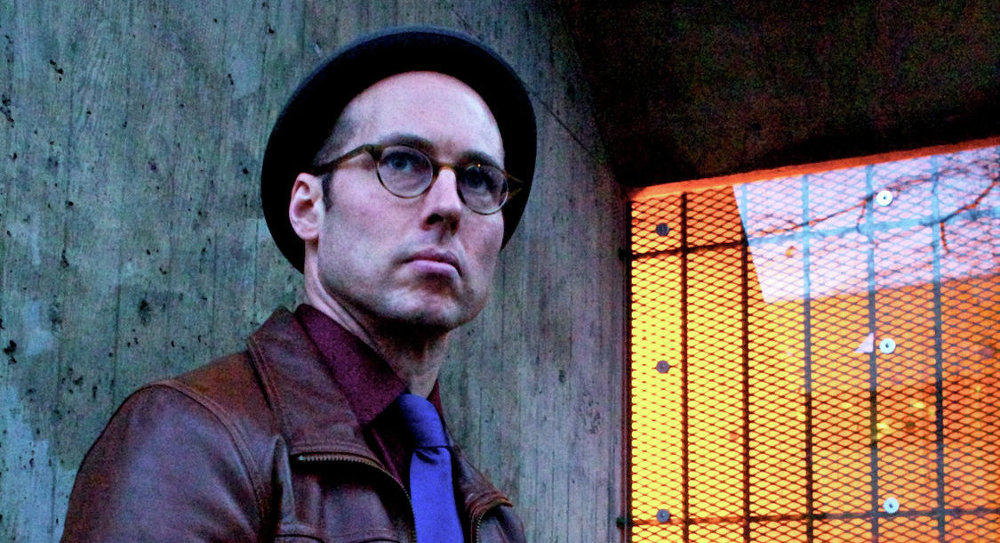— How did your love of jazz begin?
— I can't say that I grew up in a musical family. My parents are not musicians, but they did love to sing. They probably dreamed of performing on Broadway. We had a lot of records, mostly classical music, such as Beethoven and Stravinsky, in our home, but there were also records of Broadway musicals, records by Judy Garland and others.
When I was about seven, my parents signed me up for piano lessons, but I wasn't into it at all, so I didn't practice and didn't do my homework. But I always loved music and I wanted to be part of a music group.
At nine, I wanted to learn to play the trumpet. My parents rented a trumpet and signed me up with a school music program… That didn't work out for me either. The teacher wasn't friendly to me, the classes were torture, and I stopped practicing again.
A year later, I decided to leave the program because of my bad relationship with my teacher, and my parents didn't want to continue to pay for trumpet lessons, seeing as how my music classes weren't fun for me anymore. However, at the end of the year, the teacher praised me and said that I should keep practicing. I guess I was too shy to say no. So, I stayed with the program for one more year, and then I had another teacher. Leigh Stevens was the total opposite of my first teacher. To say that he was an incredibly charismatic person is to say nothing. He could really work with a band! It was Leigh Stevens who taught me how to listen to music, and introduced me to different styles of jazz. A friend of mine, when he learned that I was interested in jazz, gave me a few records by Miles Davis, Clifford Brown, Max Roach and Dizzy Gillespie. I started renting records from the library and I wore them out listening to them. That's how I learned about John Coltrane, Al Jarreau, Donald Byrd and many others. When I got my first tape recorder, I started re- recording their music on tape and listening to the music all the time.
Frankly, I never was an outstanding trumpet player, so I didn't confine myself to this instrument. At some point in my training, I realized that I was more attracted to the rhythmic component of the music: as I was listening to a particular record, I would grab some drumsticks and start drumming on a leather chair. That's how my drum training started. But it soon reached its logical end, when I, inspired by Igor Stravinsky and Thelonious Monk, decided to become a composer, and went back to the piano. My goal was not to become a professional performer, though.
This change happened to me during my college years, where I had enrolled as a trumpeter. Eventually, I switched to the piano and began attending jam sessions at various clubs. Despite the fact that I had tried to be a trumpet player and a drummer, I only got attention as a piano player, and people started calling me and offering me work. It took me a while before I started thinking like a pianist. At first, my style was a mix between a trumpeter and a drummer: the right hand played the melodies typical of trumpet players, while the left hand was doing something that felt like a drum beat. To get rid of this, I started listening to jazz pianists, paying attention to every note and every movement of their hands. That's the only way to learn how to play music.
By the way, the current generation has one big problem: they take everything for granted, and none of them can appreciate the real thing. We Americans are particularly affected by this. Personally, I'm against of the concept of a background music. It would be like having a painting by Pablo Picasso at home and using it to hang your old dirty towel on. It's the same with music: I see people chatting while a great composition is playing. If there's music playing, I pay attention to it, I listen to it and try to appreciate it.
— Tell us about your life in New York. Is it true that you have to go to New York to become a real jazz musician?
— When I moved to New York in 1995, the jazz scene was quite different than it is now. There were many opportunities, and musicians could build a career and earn their living just by playing music, without taking a second job. I wasn't hung up on having good connections and other such things. I just knew that I could make it if I could just build a good reputation for myself, and then people would know about me by word of mouth.
New York is not a panacea, but one can become successful in New York faster than in any other place. There are lots of musicians in New York, both good and bad, but the most important thing is that this city can give you connections that will propel you to unprecedented heights. However, it's a tough city, and not everyone is able to cope with it.
Today, New York is an expensive city. Many stars even only go there for concerts, to say nothing of young, aspiring musicians.
— What do you know about Russian jazz?
— I have been to Russia several times, and I performed together with drummer Evgeny Ryaboy and bass guitarist Anton Revnyuk. They are great musicians. I'm crazy about Oleg and Igor Butman. Boris Kozlov is my favorite bass player. And, of course, your audiences are wonderful.
